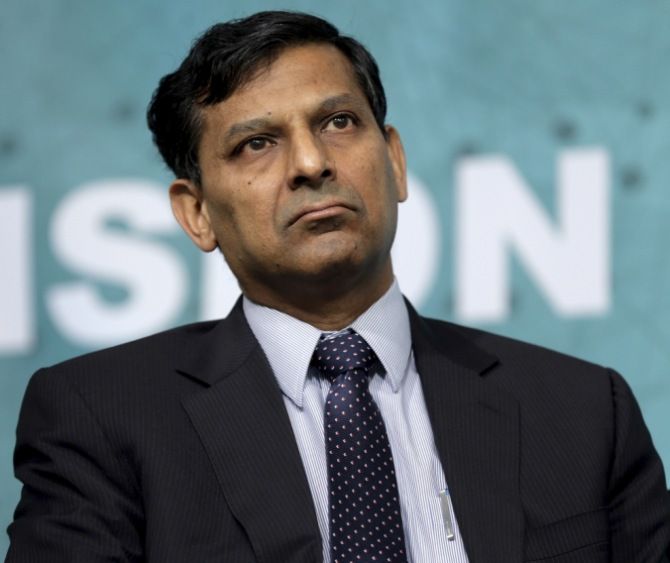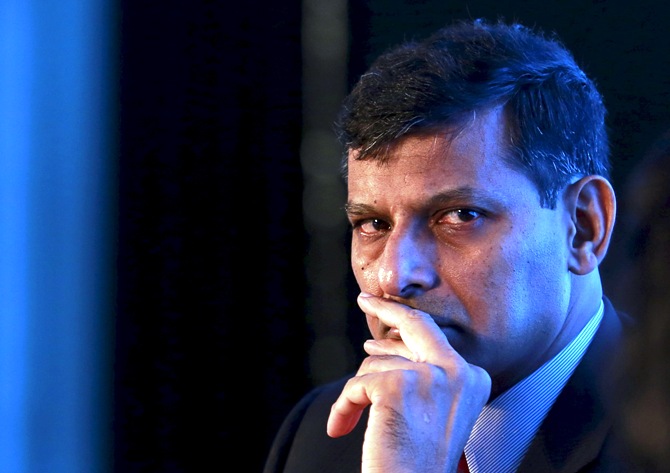
RBI Governor wants to limit inflation to 5 per cent by March 2017.
Reserve Bank of India is closely watching inflation data as well as monsoon rain forecasts for deciding on further interest rate cuts and the monetary policy still remains in the ‘accommodative mode’, Governor Raghuram Rajan has said.
Rajan, who had earlier this month cut interest rates by 0.25 per cent to 6.5 per cent, did not give any indication as to how much or by when further rate cuts would take place.
"We are watching the development of inflation and we are also looking for signs of a good monsoon. As evidence builds up one way or the other, it will give us more information of how the trajectory of the monetary policy will be," he said at the Inaugural Kotak Family Distinguished Lecture at the Columbia Law School in New York on Monday.
Consumer price inflation eased to 6-month low of 4.83 per cent in March from a year earlier.
It was 5.26 per cent in February.
Rajan wants to limit inflation to 5 per cent by March 2017 and good monsoon will lead to higher crop output.
"We are still in accommodative mode but precisely how much and when we will have to see," Rajan said to a question on impact of monsoons on interest rates at the lecture.
After two years of drought, the weather department last week forecast the first above-average monsoon in three years.
Rajan said monetary policy cannot be coordinated that easily.
"But really what we are talking about is the rules of the game for monetary policy. “One should see how much one can do and how much is beneficial to us without imposing a huge cost on the rest of the world."
He said a six-member monetary policy committee will be in place to decide on interest rates.
"I will no longer be setting the interest rates in India. The committee will be setting," he said, adding that the virtue of this is that there are "six minds that come together
to decide policies rather than one, there is continuity in the committee.
It means the committee is much harder to put pressure if you want a particular outcome than any single individual".
MPC, which will include RBI Governor and three nominees of the government, will set interest rates to bring consumer or CPI inflation to pre-set targets.
It will come into being after the Finance Bill 2016 is passed by the Parliament.
Each member shall have one vote and in case of a tie, the Governor shall have a second or casting vote.
The governor will not have a veto power. Presently, the Governor has overriding powers on monetary policy.
Image Governor of the Reserve Bank of India Raghuram Rajan speaks at a forum on financial development at the 2016 IMF World Bank Spring Meeting in Washington April 17, 2016. REUTERS/Joshua Roberts










